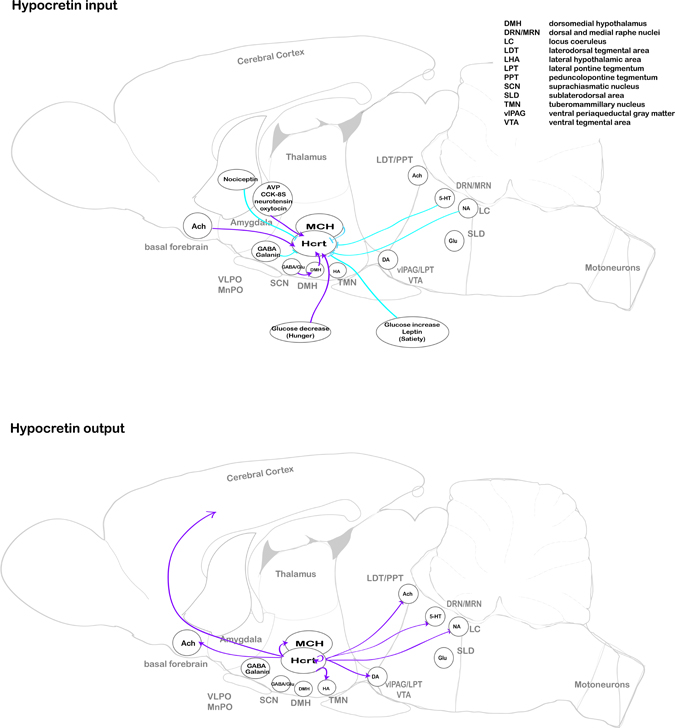
Full text loading...
Sleep and wake are fundamental behavioral states whose molecular regulation remains mysterious. Brain states and body functions change dramatically between sleep and wake, are regulated by circadian and homeostatic processes, and depend on the nutritional and emotional condition of the animal. Sleep-wake transitions require the coordination of several brain regions and engage multiple neurochemical systems, including neuropeptides. Neuropeptides serve two main functions in sleep-wake regulation. First, they represent physiological states such as energy level or stress in response to environmental and internal stimuli. Second, neuropeptides excite or inhibit their target neurons to induce, stabilize, or switch between sleep-wake states. Thus, neuropeptides integrate physiological subsystems such as circadian time, previous neuron usage, energy homeostasis, and stress and growth status to generate appropriate sleep-wake behaviors. We review the roles of more than 20 neuropeptides in sleep and wake to lay the foundation for future studies uncovering the mechanisms that underlie the initiation, maintenance, and exit of sleep and wake states.

Article metrics loading...

Full text loading...
Literature Cited


Data & Media loading...
Supplemental Figure 1. Functional circuitry of hypocretin neurons. Hypocretin input: hypocretin neurons receive activating and inhibitory projections from brain centers regulating arousal, circadian rhythm, energy homeostasis, and emotion.
Hypocretin output: hypocretin neurons activate arousal nuclei in the basal forebrain, hypothalamus, and brainstem, and project to the cortex. Figure is based on (Tsujino and Sakurai, 2013).
Download Supplemental Figure 1 as a PDF.
